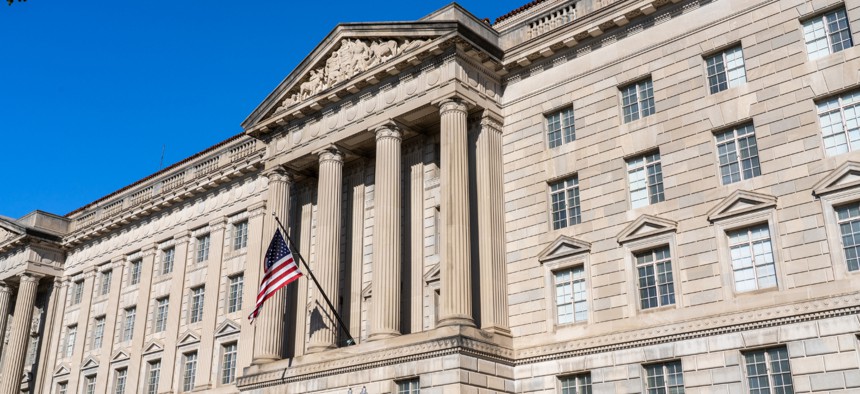Export control agency lacks funding and tech to manage its workload, official says

Kyle Little/Getty Images
The head of the Commerce Department’s Bureau of Industry and Security gave lawmakers “an emphatic no” when asked if his office has the IT resources it needs to carry out its mission.
The federal office responsible for overseeing export controls desperately needs to modernize its information technology systems to help counter the flow of sensitive technologies to China and other foreign adversaries, a top Commerce Department official warned lawmakers on Thursday.
Testifying during a House Foreign Affairs Committee hearing, Alan Estevez — undersecretary of Commerce's Bureau of Industry and Security, or BIS — said his office’s licensing workload has doubled from roughly 20,000 per year in 2012 to more than 40,000 per year now, with review timelines continuing to increase — particularly when it comes to reviewing the exports of electronic components and other technologies to China.
BIS is responsible for enforcing export controls on semiconductor and other critical technologies to China, Russia, Iran and other nefarious actors. The office is also responsible for processing and evaluating licenses for the export of technologies and other goods from the U.S.
Both the Trump administration and the Biden administration have used export controls to limit adversaries’ access to technologies deemed critical to national security, although hostile countries have still found ways to circumvent these restrictions.
Estevez said the office’s growing workload is coming as BIS personnel are “relying on antiquated systems for both license adjudication and enforcement work that were put in service in 2006 and 2008, respectively.”
When asked if BIS has the modern IT technologies and infrastructure that it needs to conduct its business, Estevez responded that “the answer to that is an emphatic no.”
“There are some requests before the committee for some data,” he added. “We’re doing manual pulls of that data right now because I don’t have Google for answering the questions that I need answered and that I’d like to support the committee with. And I have an enforcement function that also needs to be able to track who’s doing what, where that’s really antiquated.”
One major issue, Estevez said, is that Congress has not increased BIS’s budget for more than a decade, even as its critical role in enforcing export controls and stemming the flow of high-tech systems to China, Russia and other countries has increased over that time.
“BIS’s budget for core export control functions has remained essentially flat since 2010 when adjusted for inflation,” he said, noting that “BIS’s law enforcement arm employs only 150 agents to counter the threat posed by nation state actors.”
President Joe Biden’s proposed fiscal year 2025 budget would allocate $223 million to BIS, compared to the $191 million provided in both fiscal years 2023 and 2024.
This isn’t the first time that BIS officials and other experts have warned about the consequences of underfunding the office or not providing it with the modern IT resources it needs to strengthen its enforcement of export controls.
A December 2022 report from the Center for Strategic and International Studies think tank warned that persistent underfunding had left BIS’s internal tech infrastructure “in a dreadful state” and called for the use of “modern, data-driven digital technologies” that employ artificial intelligence and machine learning capabilities to enhance the office’s enforcement capabilities.



